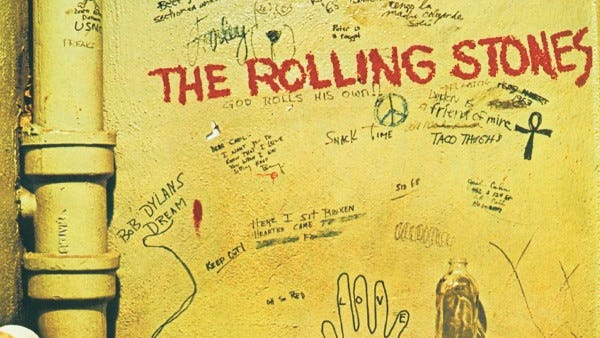


Jumpin’ Jack Flash became a major hit (reaching #1 in the UK and #3 in the US) and became one of the group’s most popular and recognisable songs. It was felt that core fans would buy the album anyway, and they wouldn’t want to feel they’d been sold the same thing twice, whereas more casual fans would stick with just singles. Like The Beatles and other acts in the 1960s, it was common practice to release a new song as a single in advance of a new album, on which the single wouldn’t be included. One of the first tracks cut during the sessions, which occurred at Olympic Studios in Barnes, south London between March and May 1968, was Jumpin’ Jack Flash, which was released only as a single in May. Miller worked well with Johns and the Stones, helping to create some of their most memorable tracks, and beefing up their rhythm tracks, sometimes even playing drums himself, as he did on You Can’t Always Get What You Want and Happy, amongst others. The famously acerbic Johns apparently said, ‘I ‘I don’t think my ego could stand having some bloody yank in here telling me what sound to get for The Rolling Stones’. Stones engineer Glyn Johns was aware of his work, and recommended Miller to Mick Jagger when Jagger expressed the desire to hire an American producer. Texan-born Miller had been working in the UK, producing artists like Traffic and The Spencer Davis Group, with whom he had co-written the song I’m A Man. Following the long sessions for the previous album Their Satanic Majesties Request in 1967 and the departure of producer and manager Andrew Loog Oldham, Mick Jagger and Keith Richards hired producer Jimmy Miller, the partnership proved to be a success and Miller would work with the band until 1973. Beggars Banquet, the seventh studio album by The Stones, marked a return to the band’s R&B roots.


 0 kommentar(er)
0 kommentar(er)
